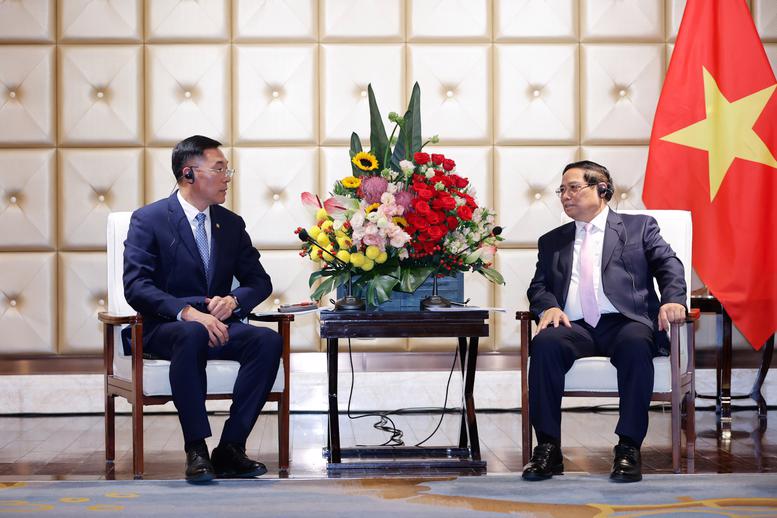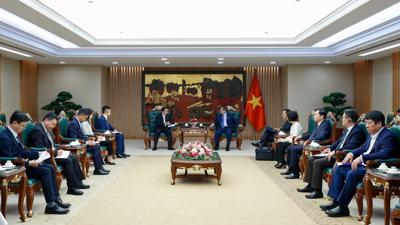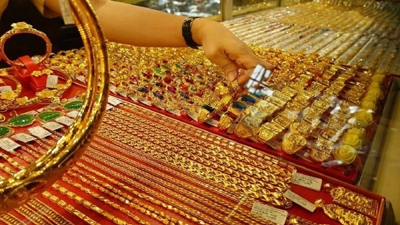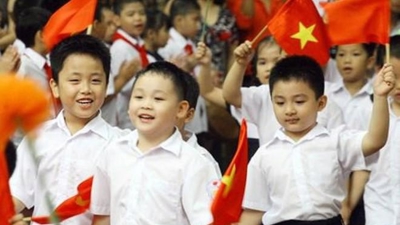PM meets leading Chinese locomotive and electricity groups
The receptions held as part of PM Pham Minh Chinh's trip to China to attend the WEF's meeting.

Vietnamese Prime Minister Pham Minh Chinh on June 24 hosted separate receptions for leaders of leading Chinese locomotive and electricity corporations in China’s Liaoning province, the Government News has reported.
The meetings took place as part of the PM’s trip to China to attend the 15th World Economic Forum (WEF) Annual Meeting of the New Champions and working sessions from June 24 to 27.
At the meeting with Chairman of the Dalian Locomotive and Rolling Stock Co. Ltd. (CRRC) Sun Rongkun, PM Chinh proposed the company to cooperate with Vietnamese partners in locomotive production and technology transfer as well as provide support in human resources training and capital sources.
Vietnam has over 2,000 km of railways and 300 stations, and plans to continue developing urban railways in major cities like Hanoi and Ho Chi Minh City, according to the PM.
Mr. Sun said his company wishes to continue providing railway products for Vietnam, and cooperate in the production of rail transport and new energy products in the country.
In particular, CRRC wants to cooperate in inter-regional, inter-provincial and urban railway projects in Vietnam, especially urban railway lines in Hanoi and Ho Chi Minh City.
At the meeting with Mr. Wang Xiaojun, Deputy General Manager of the Power Construction Corporation of China (PowerChina), PM Chinh proposed the corporation to expand investment and business in Vietnam, particularly in cooperating and supporting the railway development and renewable energy.
PowerChina has operated in Vietnam since 2000 with many big energy projects, and it is interested in pumped storage hydropower projects, wind power projects in the northern region, integrated LNG projects, and infrastructure, particularly transport infrastructure in the Southeast Asian country.
The corporation wishes and is ready to enhance cooperation with Vietnamese partners in the fields of railways, urban railways, wind power and new energies, Mr. Wang said.







